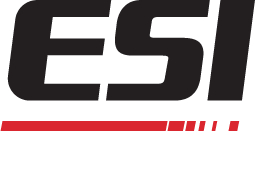The flexible packaging world is a multi-billion dollar industry. From pet food and cartons to drink labels and frozen food, there seems to be every shape, size and design of consumer products with printed images and graphics. Companies that sell different products use flexible packaging to separate themselves from their competition visually, provide a new way to transport/consumer/store the products, and to have the most efficient and green processes in print.
Read MoreOne of the biggest trends in flexible packaging is the movement towards sustainability. The idea is creating a better flexible packaging universe that helps preserve the environment, cuts cost, produces a better final product, and is more efficient.
Read MoreThe main attraction at last October's Comexi Group event was the opening of the Manel Xifra Boada Technological Centre. The new operation will provide consultancy, training and academic opportunities, innovation, and a demo center/laboratory (with 13 lines).
Read MoreWe keep hearing about new developments for electron beam (EB) curable inks—and now a new EB ink has arrived. This past November, Uteco wanted to showcase a new EB ink system, and invited various printers, writers, and industry experts to witness the unveiling and judge for themselves if in fact, a revolution in CI flexo printing had arrived.
Read MoreIn the business of curing inks, coatings, and adhesives, those same principles apply. There are, however, dramatically different ways in which one can cure products, especially in flexible packaging, cross linking, and sterilization. So the question constantly being asked by the entire supply chain is what is the optimal method for curing inks, coatings, and adhesives that produces the maximum benefit to all?
Read MoreIt's not surprising that printing companies want the ability to produce the best possible products in the most cost effective manner. That’s fundamental to operating a successful business. Many companies from all over the world claim to have the latest and best innovations to cut costs and improve image quality.
Read MoreeBeam technology can help packaging companies simplify their substrates by moving from reverse printed laminations to high gas barrier, multilayer monoweb coextruded films. These high barrier monoweb films can be surface printed with or without first down white. The first down white, ink and varnish can all be energy curable.
Read MoreWhen businesses are looking to increase profits, while providing a better final product to their customers, they will often take a hard look at their materials and processes. What areas are generating excess waste and cost? Where can we improve efficiency without comprising the quality of the final product, and even improve upon the deliverable to clients?
Read MoreThe flexographic printing market isn't slowing down—due to the wide range of package applications, cost and environmental concerns, more and more companies are using flexo printing for their final products. As a result, printers are trying to find innovative ways to take a better final product to their clients, at a more affordable rate, while cutting down on their own waste and ink use.
Read MoreIn the world of flexible packaging printing, or really anywhere within the Flexo printing industry, the goal is to produce amazing and brilliant final images in a manner that is cost effective, fast, reliable, and safe. Over the last two decades, technology and innovation have made huge improvements to the Flexo industry, streamlining processes and driving efficiency into the operation.
Read More
